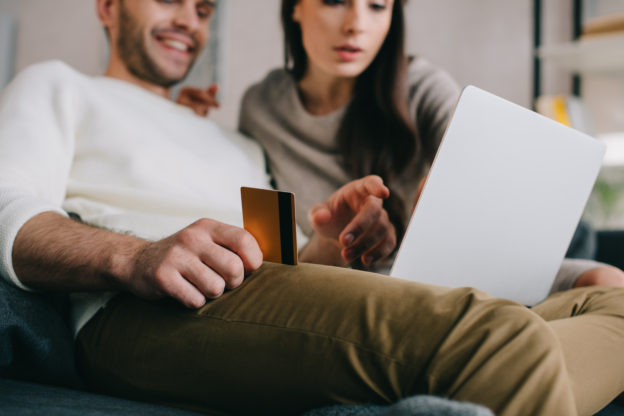Before you begin your journey to financial freedom, it is beneficial to discover and reflect on the reasons why you spend. Uncovering the emotions behind each acquisition may help you stop overspending in its tracks.
Instant Gratification
One of the top reasons most people purchase superfluous items is because of the hit of dopamine they get at the moment. They may feel more excited or fulfilled, but this is often only short-lived.
Once the original buzz wears off, which can be as soon as the next day, a sense of guilt or stress may replace the original feeling. This leads to the desire to spend even more to replace the negative feelings. This cycle can cause even bigger financial problems in the future.
Sense of Control
Advertisers know that most purchases are not practical, but rather emotional. People buy things that represent their values, desires, and how they would like to be perceived by others. Spending can give a boost of confidence or help erase an emotional void. After spending on these items, many gain a feeling of control about these sensitive areas of their lives.
Generating savings is one of the ways people actually gain greater control in their lives, but they won’t get the same immediate feeling of power and control when doing it. It’s important to be aware of this effect before deciding the best place for your money.
Sense of Available Funds
Credit cards have completely changed how spending is perceived. If you have a credit card, you may feel like you suddenly have the power to buy a lot of items or experiences that were previously out of reach.
Due to the quick gratification of spending money you may not have earned yet, it’s easier and quicker for most people to take the plunge on a variety of purchases. However, once the credit card bill arrives, many people don’t even remember what they originally bought. People who pay with cash or checks typically buy less and think more before committing.
Diderot Effect
Denis Diderot was a French philosopher who lived the majority of his life in poverty. He needed a dowry for his daughter to be married, but he couldn’t afford it. Catherine the Great offered to help by buying his library for a hefty sum.
Now Diderot found himself with wealth for the first time in his life. One of his first purchases was a beautiful scarlet robe. However, once he had the robe, he had to have the accessories to go with it. Soon after, he also needed a more beautiful area to house his luxury items. He began acquiring more high-end items based on what he had previously purchased. This is now known as the Diderot effect.
This is commonly seen when you buy a nice tuxedo or dress and need the shoes or accessories to match them, or you may have renovated one room in your home and now feel the need to redo everything. It’s important to prepare yourself for this common psychological trick before any lavish purchase.
Checks as a Way to Overcome Overspending
A great way to decrease overspending is to minimize your finances and practice slower spending habits. Lowering your use of credit cards and instead using personal checks is a great way to begin the process.
Writing checks takes time and consideration, rather than a simple swipe on a card. By using checks you will gain greater clarity before you decide to spend, and you can finally take back control of your finances.

